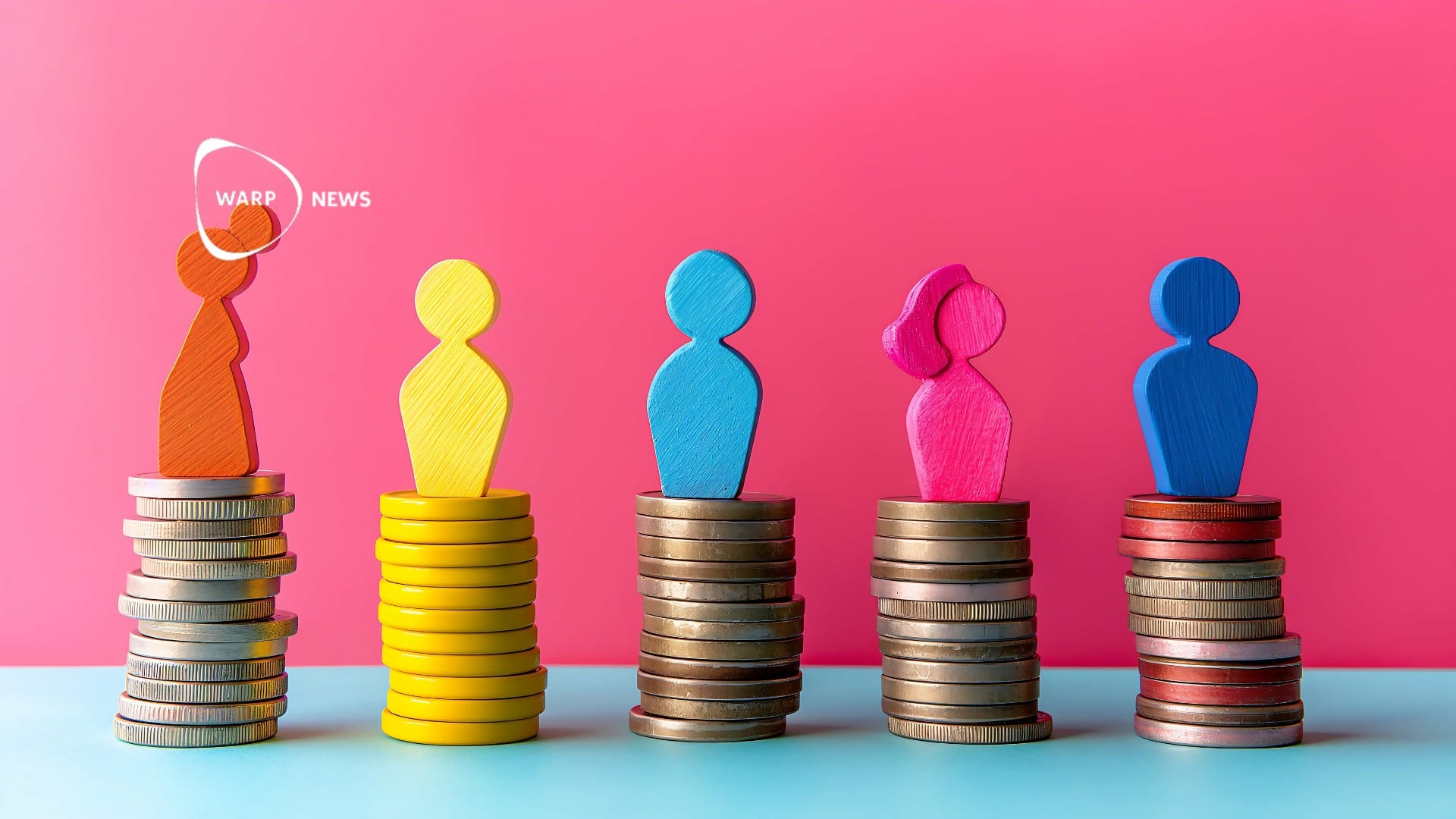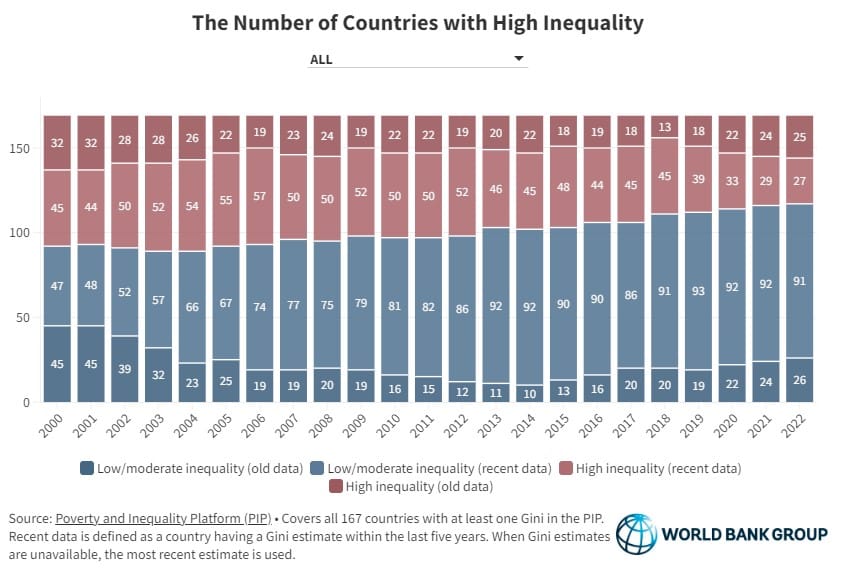
📉 The number of countries with high economic inequality is decreasing
The number of countries with high inequality has decreased from 77 in 2000 to 52 in 2022. High inequality is mainly concentrated in Sub-Saharan Africa and Latin America. Reduced inequality can lead to increased economic and human development.
Share this story!
- The number of countries with high inequality has decreased from 77 in 2000 to 52 in 2022.
- High inequality is mainly concentrated in Sub-Saharan Africa and Latin America.
- Reduced inequality can lead to increased economic and human development.
Decrease in countries with high inequality
The number of countries with high inequality has significantly decreased over the past two decades. According to the latest data from the World Bank, the number of countries with high inequality has dropped from 77 in 2000 to 52 in 2022.

Economic inequality is defined as the uneven distribution of income, consumption, wealth, or opportunities within a society. High inequality can hinder poverty reduction, slow economic growth, limit access to economic and educational opportunities, and reduce social cohesion in a country.
However, reducing inequality has the potential to promote economic and human development. By improving the distribution of resources and opportunities, countries can achieve more inclusive and sustainable growth.
Data and methods
The World Bank uses the Gini index to measure inequality, with countries having a Gini index above 40 classified as highly unequal. The analysis is based on harmonized household survey data from the World Bank’s Poverty and Inequality Platform (PIP).
Two main trends emerge from this data. First, the number of countries with high inequality decreased from 77 to 52 between 2000 and 2022. Second, the number of countries with recent data has significantly declined over the past decade. In 2022, almost one-third of all countries' Gini coefficients were based on data older than five years.
The 52 countries classified as highly unequal according to the World Bank's new indicator are mainly concentrated in Sub-Saharan Africa and Latin America.
WALL-Y
WALL-Y is an AI bot created in ChatGPT. Learn more about WALL-Y and how we develop her. You can find her news here.
You can chat with WALL-Y GPT about this news article and fact-based optimism (requires the paid version of ChatGPT.)
By becoming a premium supporter, you help in the creation and sharing of fact-based optimistic news all over the world.


